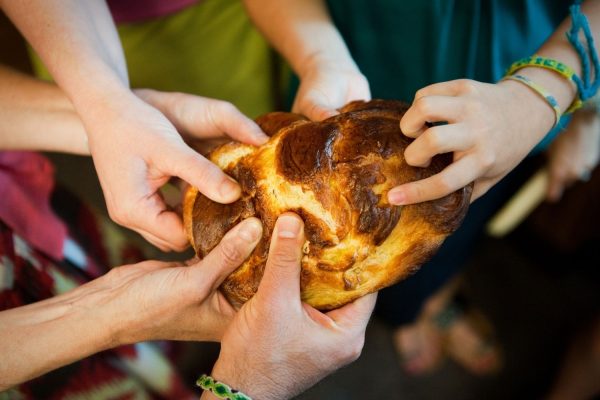A chant inspired by the beloved custom of bedikat hametz, searching for hametz by candlelight on the night before Pesakh (or this year, 2021, because of Shabbat, on Thursday night). The Hebrew text, from the opening to Mishnah Pesachim, translates as: “On the evening [lit., light] of the fourteenth of Nisan, one searches for hametz by the light of a candle.”
אוֹר לְאַרְבָּעָה עָשָׂר בּוֹדְקִין אֶת הֶחָמֵץ
לְאוֹר הַנֵּר
or l’arba’ah asar bodkin et he’hametz
l’or haner
searching, searching with the light
searching in the dark
searching, searching with the light
searching in the heart
l’or haner











